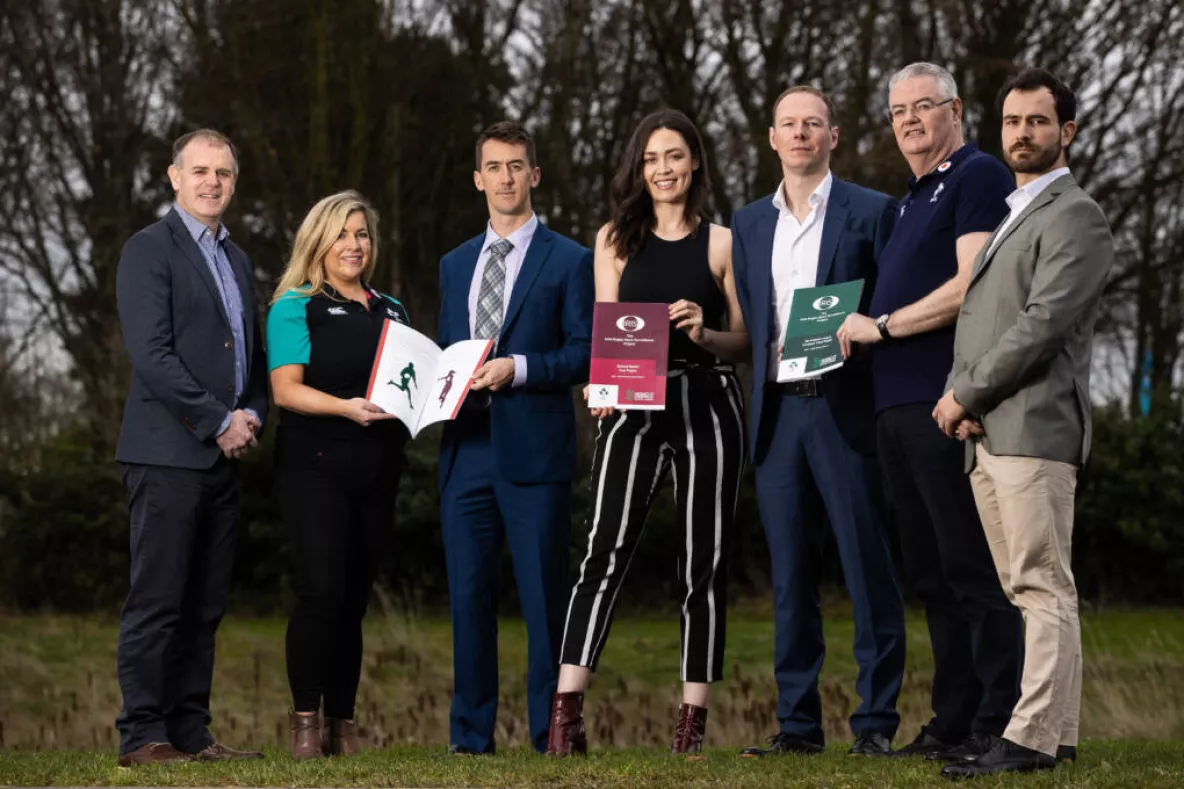
A University of Limerick research project looking at player welfare in rugby is leading the way globally on surveillance in the women’s game.
University of Limerick and the Irish Rugby Football Union (IRFU) have just released the latest findings from the Irish Rugby Injury Surveillance (IRIS) research project.
This, the sixth year of findings in the IRIS research project which is based at UL and is led by principal investigators Dr Tom Comyns and Professor Ian Kenny, investigated trends in the Men’s and Women’s Energia All-Ireland League during the 2023/24 season.
The study is significantly impacting practice and policy within the IRFU, with the yearly reports a vital component of the IRFU decision to lower the tackle height and address tackle behaviour in the community and school game.
The research collaboration was originally established in 2016 and the partnership between the IRFU and IRIS has been extended to 2030.
IRIS is currently being utilised to assess the impact of the tackle height change on the injury profile of community and school players and on stakeholder engagement.
The project is leading the way globally on surveillance in the women’s game and is the only long-term injury surveillance system internationally in the women’s community game.
The IRIS team have adapted their electronic injury surveillance system to allow for the recording of female specific injuries, such as breast injuries. The system is the only one globally that has the capacity to currently record breast injuries in the women’s game.
Dr Rod McLoughlin, the IRFU’s Medical Director, said: “The IRFU are one of the only Unions participating in the World Rugby Global Tackle Height Trial that have the ability to longitudinally compare injury trends before and after the law change, thanks to the continued injury surveillance work carried out by the IRIS Project. These data allow us to understand the impact of the law change, alongside video analysis and stakeholder feedback.
“With continued growth in the women’s game, we are pleased to see the development of the IRIS recording system to allow monitoring of female-specific injuries, such as breast injury. This work is only possible with the ongoing support of our clubs and schools working with the IRIS Project.
“We thank each club, school, data collector, volunteer, player and researcher for their vital role in the project, which allows us to create evidence-informed impactful player welfare and performance strategies.”
The reports cover Energia All-Ireland League amateur club rugby and Schools Senior Cup rugby.
Injury Frequency:
A male player, on average, would have to play 21 matches to sustain one injury (previously 17 matches). Injury incidence rate was 36.3/1,000 player hours (down from 43.3/1,000 player hours).
A female player would have to play 33 matches to sustain one injury (previously 25 matches). Injury incidence rate was 22.8/1,000 player hours (down from 30.3/1,000 player hours).
A School Senior Cup player would have to play on average 25 matches to sustain one injury (previously 22). Injury incidence rate was 34.7/1,000 player hours (down from 38.5/1,000 player hours in the 2019/20 season).
Senior Club Injury Event:
59% (men’s) and 63% (women’s) of match injuries are a result of the tackle
57% (men’s) and 41% (women’s) of tackle related injuries sustained by the ball carrier
43% (men’s) and 59% (women’s) of tackle related injuries sustained by the tackler
Men’s Club Match Injury Occurrence:
4.4/1,000 player hours: concussion (down from 9.1/1,000)
3.4/1,000 player hours: ankle ligament sprain (down from 5.0/1,000)
3.0/1,000 player hours: hamstring strain (down from 4.7/1,000)
Women’s Club Match Injury Occurrence:
2.6/1,000 player hours: knee sprains (down from 3.7/1,000)
2.6/1,000 player hours: ankle sprains (down from 4.3/1,000)
2.0/1,000 player hours: concussion (down from 2.5/1,000)
School Senior Cup Match Injury Occurrence:
7.5/1,000 player hours: concussion (same as previous season)
3.8/1,000 player hours: ankle sprain (marginally up from 3.6/1,000)
2.4/1,000 player hours: shoulder dislocation/subluxation (down from 2.7/1,000)
The UL based IRIS project has continued to expand their research team, partners, and aligned projects. Currently there are five PhD scholars researching various imperative aspects of the community and school game:
Kilian Bibby: Club Injury Surveillance and Incidence of Breast Injuries in the Women’s Game
Lauren Guilfoyle: School Injury Surveillance and Education of Coaches on the IRFU ENGAGE Readiness and Robustness Programme
Laura Power: Concussion Duration, Recovery and Treatment in the Community Game in collaboration with UPMC Ireland.
Dáire Curran: Impact of Tackle Height Behaviour Change in Community Rugby
Tabitha Billingham: Integration of Injury and Illness Epidemiology around the Prevalence of Relative Energy Deficiency in Sport (REDs) in Ireland. Project supported through funding from the Irish Research Council.
The club data were compiled by researcher Kilian Bibby across 508 matches from 23 men’s and women’s All-Ireland League clubs. In the schools’ game, data were compiled by researcher Lauren Guilfoyle across 212 matches from 15 Senior Cup Teams. A total of 853 male, 145 female players and 481 schoolboy players were registered with the IRIS project for the 2023/24 season.